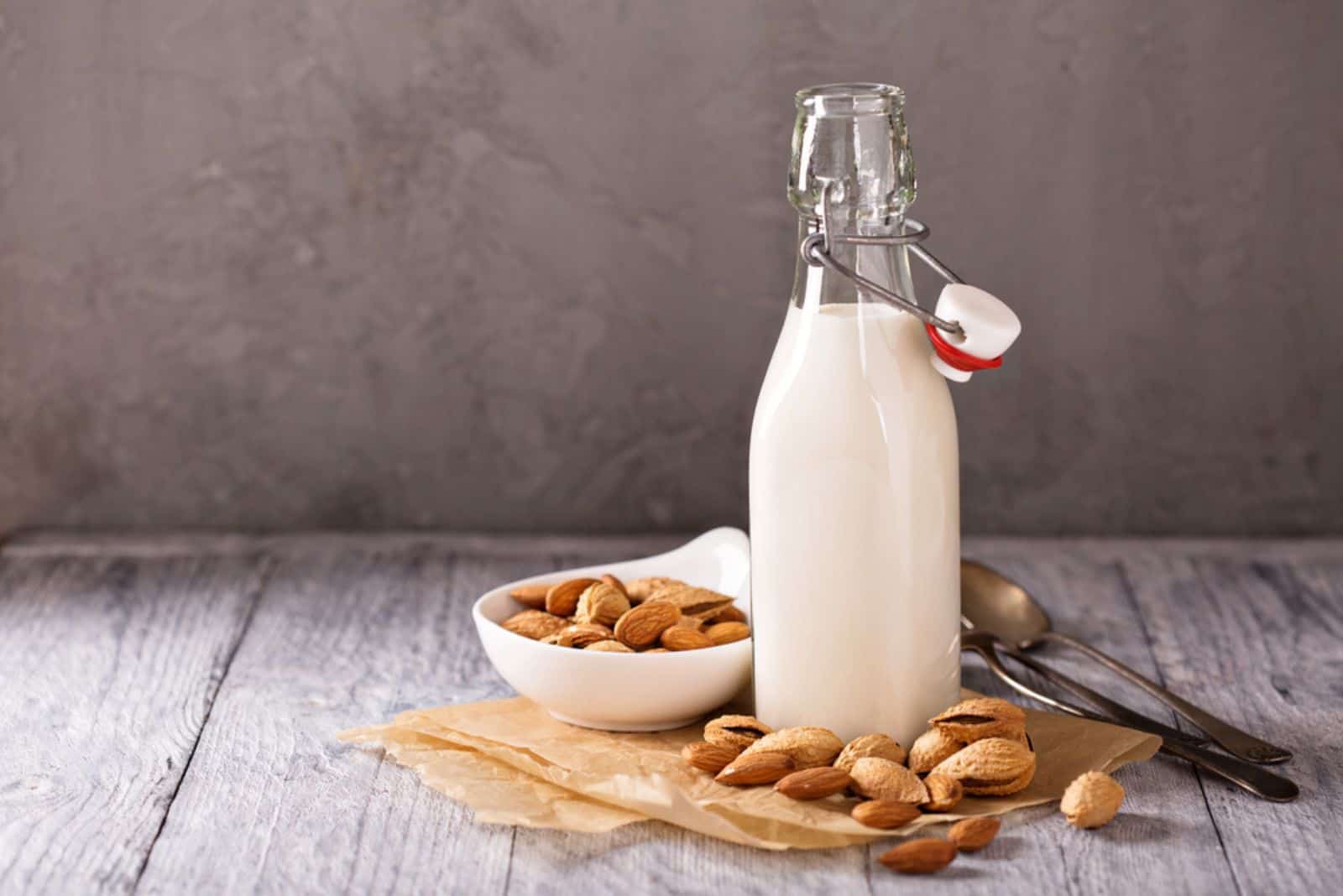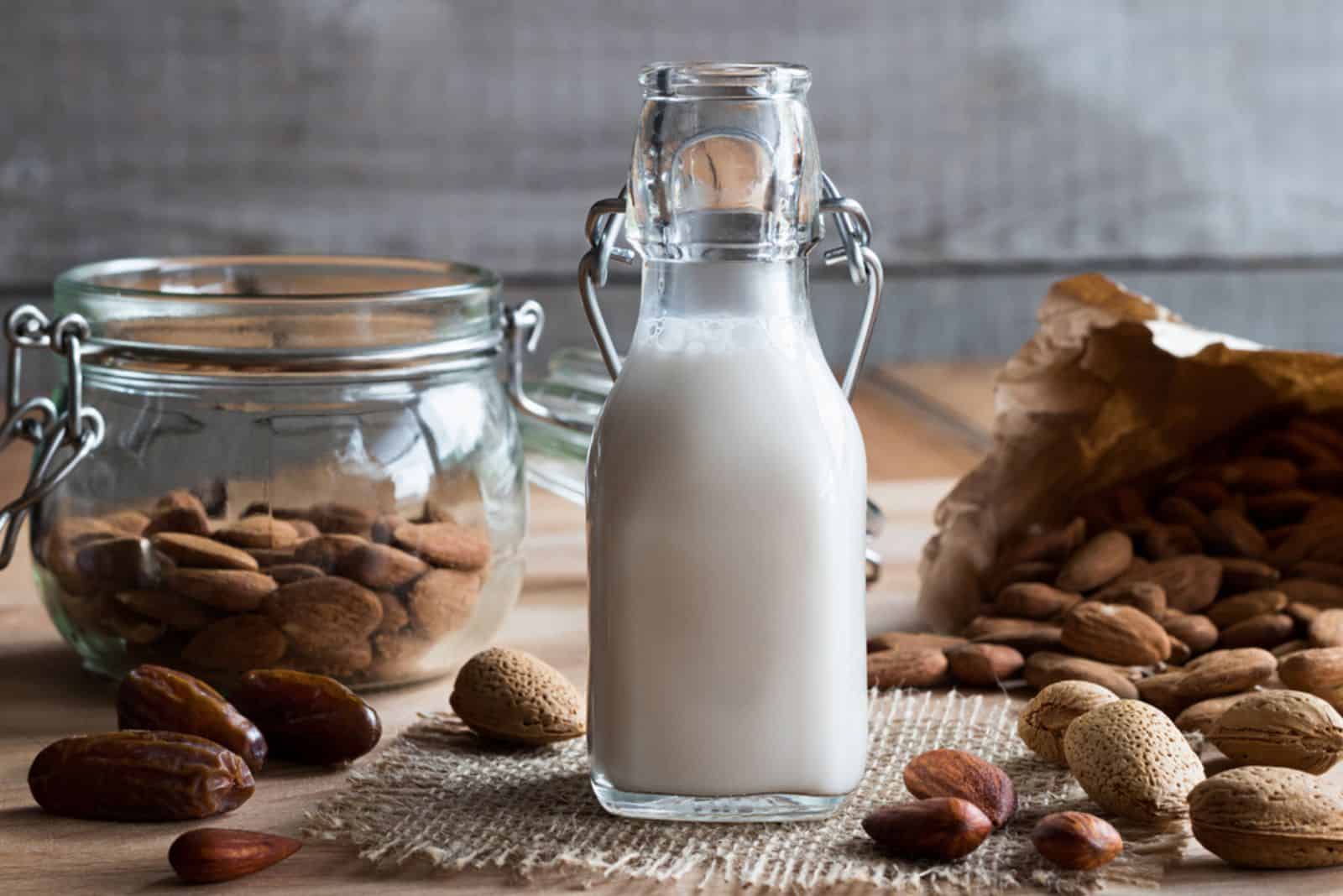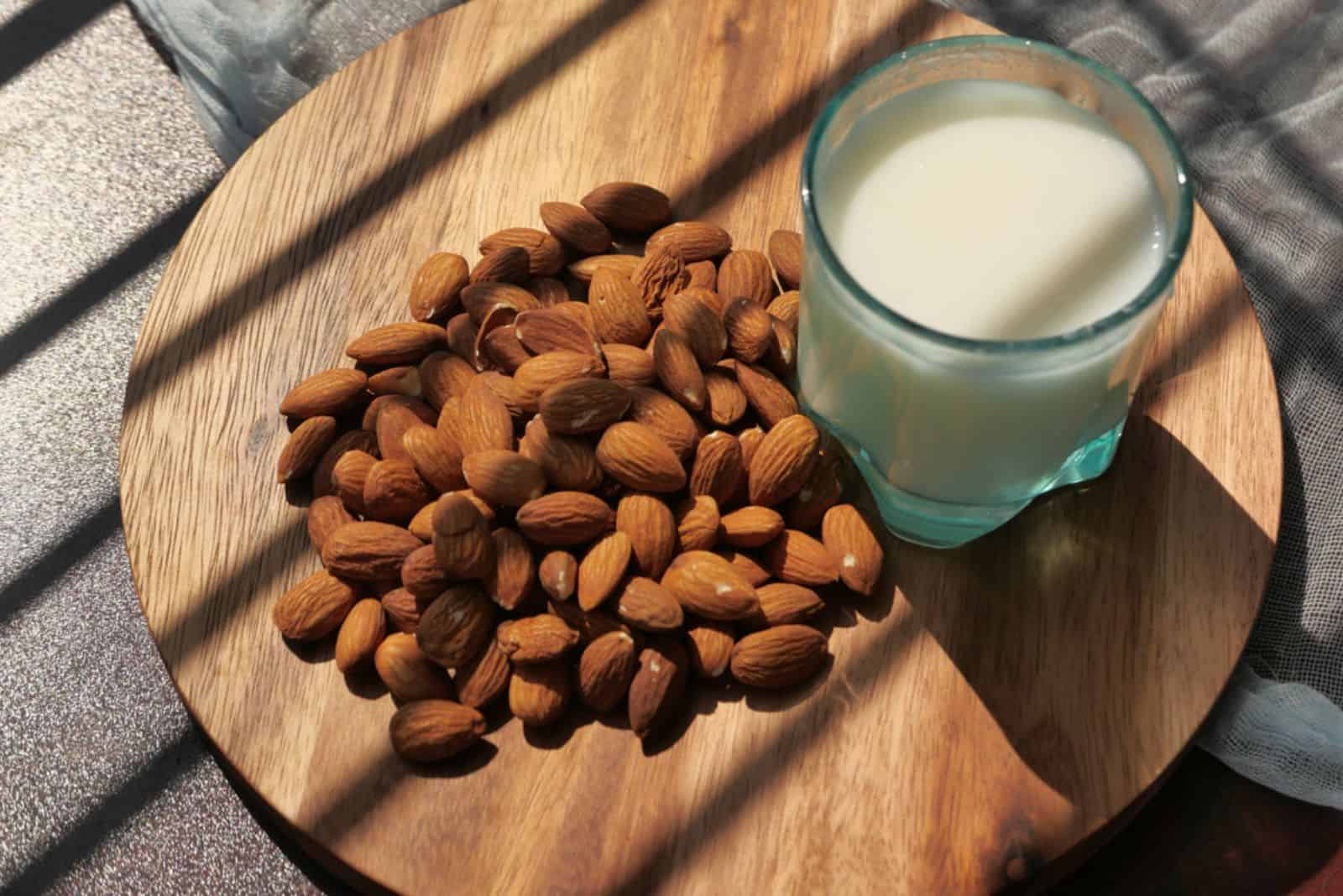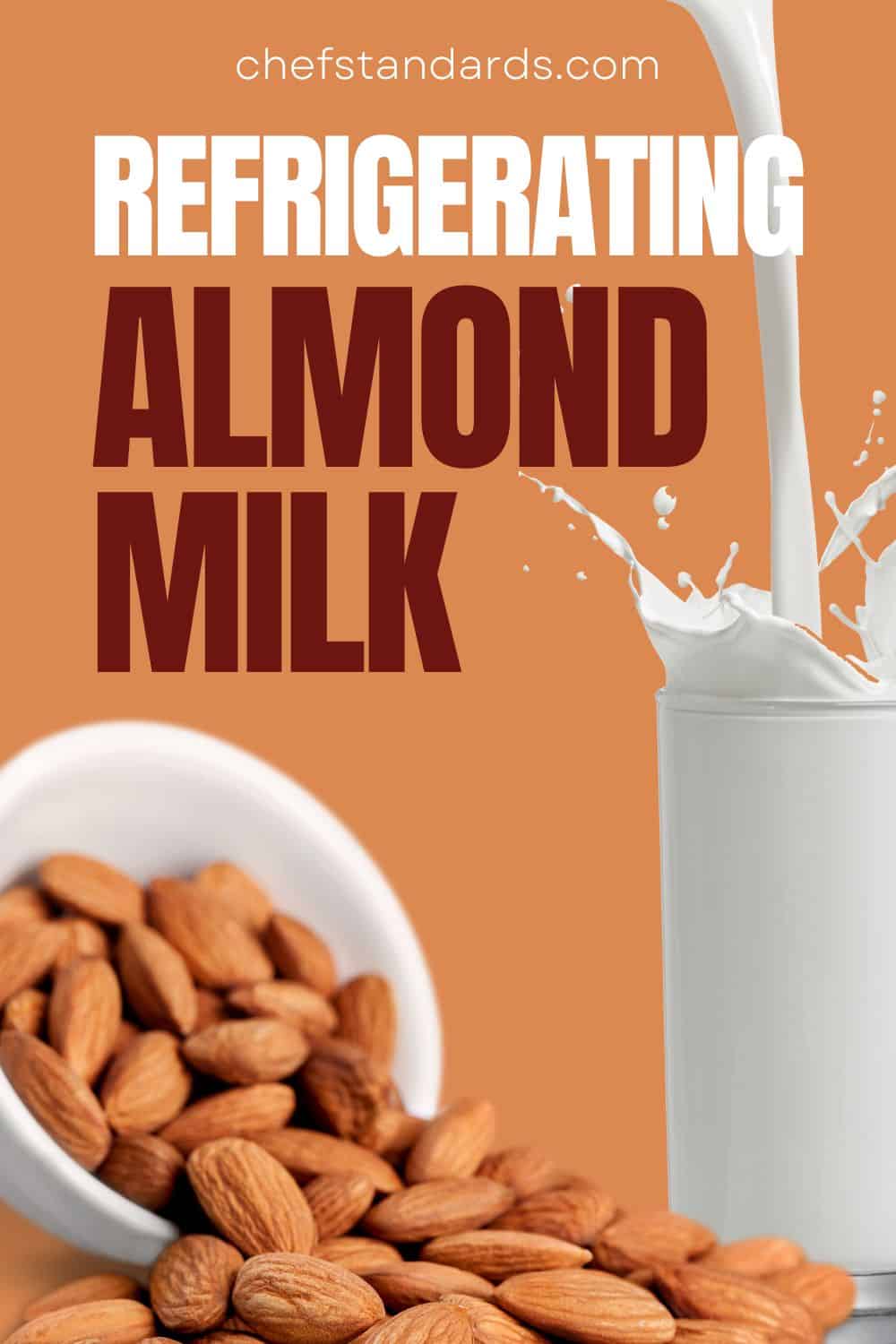Drinking non-dairy milk, i.e. plant-based milk, has become very popular in recent times since so many people discovered that they are intolerant to lactose. But that, of course, is not the only reason why so many people switch from regular milk to nut milk.
For many of them, milk alternatives including almond milk, coconut milk, oat milk, etc. are much more tasty and delicious.
And, besides that, those types of milk are healthier than cow’s milk since they are good for various health issues, including heart diseases, stroke, and even cancer.
But, of course, some legitimate questions about the proper storage of almond milk, in this case, and one of the most frequently asked is “Does almond milk need to be refrigerated?”.
And, the only legitimate answer to this question is “Yes, almond milk definitely has to be refrigerated”.
Still, there are a lot of factors that determine the way you store your almond milk, but, in most cases, refrigerating it is the best option.
In this article, besides answering the question of whether or not to refrigerate almond milk, I am going to reveal to you the most important information about almond milk storage, shelf life, and some extra tips related to this important topic.
Does Almond Milk Need To Be Refrigerated?

Does almond milk need to be refrigerated? Yes, in most cases, almond milk needs to be refrigerated. Once you open any type of almond milk, the refrigerator becomes the best place to be.
I will emphasize the statement “any type of almond milk” because there are two main types of almond milk and those include shelf-stable almond milk and non-shelf-stable almond milk or refrigerated almond milk.
Those are the store-bought almond kinds of milk. Most people prefer store-bought almond milk, but there is also homemade almond milk, about which I will also say a few words.
So, as I already said, every type of almond milk that has been opened, no matter whether it is shelf-stable, refrigerated, or homemade, needs to be refrigerated because it won’t stand a chance at room temperature.
Now, there are differences between the storage of these types of almond milk when they are unopened. More about that below.
How Long Can Almond Milk Sit Out Unrefrigerated?

The answer to this question lies in the type of almond milk and its status, i.e., is it open or not? So, let’s see how long every type of almond milk can stay outside of the fridge.
Homemade Almond Milk
I will start with your own culinary masterpiece. There are not many people who have the time to make their own almond milk, but for those who are, here are some important pieces of information.
When you make your own almond milk, it is best to refrigerate it almost immediately. That means you can not let it stay on the countertop or on the shelf for any length of time because it hasn’t gone through the process of pasteurization.
The quick guideline is, when you make it, place it in an airtight pitcher and refrigerate it immediately. It can stay in the fridge for 3-5 days, but in my opinion, it is best to use it within 3 days.
Refrigerated Almond Milk
Refrigerated almond milk is a type of store-bought almond milk that you will find already refrigerated in grocery stores. This means that refrigerated almond milk does not like high temperatures, i.e., it is natural for it to be in the fridge.
So, when you buy it and take it home, refrigerate it immediately until you open it. It can stay in the fridge for up to a week past the use-by date.
But, once you open the milk container, you have to consume it within 7-10 days while keeping it in the fridge. Do not, under any circumstances, leave it unrefrigerated because it will spoil within a few hours.
Shelf-Stable Almond Milk
You will find this kind of almond milk in the Tetra Pak on the shelf of your local grocery stores. Shelf-stable almond milk does not have to be refrigerated when you buy it because it was made by a different process when compared with the other two types.
The packaging of this type of almond milk is made from so-called aseptic materials and that leads to a further expiration date, i.e., a longer shelf life of almond milk.
This kind of packaging eliminates the need for refrigeration or additional preservatives. There is also the sterilization process that protects shelf-stable almond milk from spoiling.
So, this is the only type of almond milk that can stay at room temperature for quite some time. Unopened shelf-stable almond milk can stay at room temperature for 2-4 weeks after the expiration date.
Open carton of this type of almond milk must be refrigerated immediately and it can last in the fridge for up to 10 days of opening.
Take note of the 2-hour rule by the USDA: Almond milk shouldn’t be consumed if it was left outside of the fridge for more than 2 hours after it has been opened.
But, if you ask me, I would personally recommend you not to consume it even if it has been at room temperature for shorter than that time to avoid all potential risks.
Does Almond Milk Go Bad

Yes, of course, almond milk can go bad just like any type of food, if not stored properly. The main reason for the spoilage of most almond milk types is the fact that people leave it in places with higher temperatures.
That is especially the case with homemade and non-shelf-stable almond milk. Those types of almond milk should under no circumstances be left unrefrigerated.
There is only one type of almond milk that can stay unrefrigerated for a longer time frame and that is unopened shelf-stable almond milk.
But even this type can easily go bad if you do not store it in the right place. The warmest places are in direct sunlight or close to a significant source of heat.
Also, you have to avoid storing this type of almond milk in places with drastic temperature changes.
This means that you have to find a dark place that is far from any source of heat and where the temperature is stable. There, your unopened shelf-stable almond milk will be safe.
When it comes to these other types, you can’t just put them anywhere in the fridge. It is not a good idea to put almond milk cartons in the fridge doors because the temperature will be unstable.
It is best to put it somewhere deep in the fridge where the temperature is much lower and stable as well.
What Are The Signs That Your Almond Milk Has Gone Bad?

Almond milk can easily go bad due to harmful bacterial growth. The main reason for the spoilage is the temperature danger zone which is, according to FDA, everything above 40 degrees F. If you don’t want food poisoning, you must know the signs of spoilage.
• The first sign that I will mention here is the smell. If the smell is unusual, i.e., if it’s not fresh and nutty, then that is a sign that your almond milk has gone bad and that you must discard it immediately. Do the same smell test when checking whether oat milk has gone bad (or any other milk).
• The second one is taste. If it has a sour taste, then that is a sign of spoilage.
• Then, there is also a change in color. If you spot any discoloration in your almond milk then it is better not to consume it. Most of the time, if the almond milk spoils, it will change color to a yellowish hue.
• Another sign is a change in texture. If you notice that the texture has become thicker, throw it in the trash because it is not good for consumption anymore.
• Changes in consistency are also a sign of spoilage. If you notice any lumps, i.e., if you notice that the almond milk is not smooth and creamy anymore, you should discard it.
• And finally, if you notice that the packaging has bloated, then that is surely a sign that your almond milk has gone bad. Bloating is the consequence of mold in the milk.
Can You Freeze Almond Milk?
Theoretically speaking, yes, you can freeze almond milk. But, you have to know that freezing almond milk is not like freezing some other types of food like freezing chicken, poultry, some kind of veggies, etc.
By freezing your almond milk, you will have to be aware of some consequences. Although your almond milk will be safe for consumption after freezing and thawing, its texture won’t be the same.
Almond milk won’t be as smooth as when it is fresh, but rather chunky instead. And believe me, that is not something that you would want to consume. Also, the nutritional value of the almond milk will decrease.
I would recommend you freeze and use your old almond milk only in one condition and that is if you want to save it for cooked or baked recipes. In that case, the texture of milk is not that important.
But, if you are a milk drinker, I definitely wouldn’t recommend you freeze your almond milk.
What Are The Most Important Tips When It Comes To Almond Milk Storage?

Now, I will briefly tell you the most important tips related to almond milk, its shelf life, and, most important, its proper storage.
• When making your own homemade almond milk, make sure to clean your almonds properly and store them in an airtight pitcher.
• You definitely must refrigerate homemade almond milk immediately after you make it.
• Non-shelf-stable almond milk must also be immediately refrigerated after it is bought in the grocery store.
• Unopened shelf-stable almond milk must be kept in a dark place with no direct heat and where the temperature is stable.
• Unopened shelf-stable almond milk must be used until the recommended best-before or best-by date.
• When refrigerating almond milk, make sure that you don’t store it in the fridge door because the temperature is higher and it is more unstable.
• Choose the deepest place in the fridge to store your almond milk because it really loves low temperatures.
• Do not freeze your almond milk if you want to drink it after thawing it. Freeze it only if you will use it for cooking or baking.
• Make sure to refrigerate your unopened shelf-stable almond milk for a few hours before serving it.
FAQs

What Is The Shelf Life Of Refrigerated Almond Milk?
The shelf life of refrigerated almond milk depends on the type of almond milk. In the case of homemade almond milk, the shelf life will be about 3-5 days.
Unopened non-shelf stable almond milk will stay fresh in the fridge for up to 10 days. Opened non-shelf almond milk will last in the fridge for up to 7 days.
The shelf life of unopened shelf-stable almond milk in the fridge is about 6-10 weeks. And, the shelf life of opened shelf-stable almond milk is 10 days in the fridge.
What Is The Difference Between Refrigerated And Unrefrigerated Almond Milk?
The main difference between refrigerated and unrefrigerated almond milk is that they haven’t been made using the same process. Also, these two main types of store-bought almond milk haven’t been packaged the same way.
Unrefrigerated almond milk, also known as shelf-stable almond milk, has been sterilized and stored in special packaging with aseptic materials that extend its shelf life when kept at room temperature.
It has been heated at ultra-high temperatures to kill any harmful bacteria. Because of this, unrefrigerated almond milk can stay at room temperature for a much longer time than refrigerated almond milk.
Final Answer
As you could have seen, the answer to the question “Does almond milk need to be refrigerated?” is at the same time very simple and very complicated.
Generally speaking, it is always a good idea to refrigerate your almond milk if you do not want to experience some cramping or nausea, i.e. food poisoning.
But, since there are three main types of almond milk, for some of them it is necessary to be refrigerated, and for some, it is not.
You definitely have to refrigerate homemade almond milk right away. The same applies to the refrigerated store-bought version of almond milk, no matter if it is opened or unopened.
And finally, when it comes to shelf-stable almond milk, it is the only version of almond milk that can stay at room temperature for a longer time if left unopened.
As soon as it is opened, it must be refrigerated as well. So, if you consume almond milk regularly or if you buy it sometimes to enjoy it, keep these valuable pieces of information on your mind and you won’t have any problems with food poisoning and things like that.

